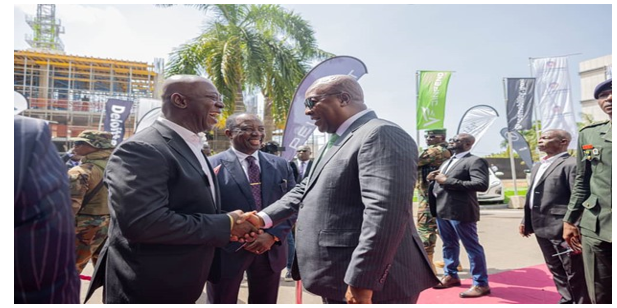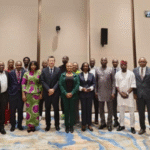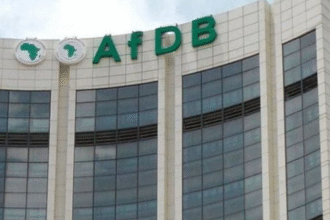By Lamin Guèye
Accra, Ghana – President John Dramani Mahama has lauded Margins ID Group and its CEO, Moses Kwesi Baiden Jr., for their pivotal role in revolutionizing Ghana’s digital identity landscape through the Ghana Card initiative. Speaking at the 9th Ghana CEO Summit in Accra, Mahama, echoing Baiden’s keynote address on the economic potential of digital identity, declared the Ghana Card as the “backbone of a digitally sovereign and competitive economy.”
Mahama revealed that Ghana’s success is attracting international attention. “I recently received a request from the DR Congo asking for a reference on Moses and the Ghana Card system,” he stated. “They wanted to know if they had done a good job. I said, yes, they did.”
The Ghanaian president highlighted the practical applications of the Ghana Card, citing the planned reintroduction of road tolls as an example. “Every vehicle is now linked to its owner’s Ghana Card,” Mahama explained. “We no longer need old tollbooths. We just take a picture of your car, and the bill goes to your mobile money or bank accounts.”
Moses Baiden elaborated on this, emphasizing the real-time integration of the Ghana Card with crucial government systems. “Imagine walking into the DVLA for verification, and within 300 milliseconds, your data is reflected in the DVLA database,” he said. “This ensures that if you buy a vehicle, it will be undeniably yours. Your driving license, whether registered remotely or in person, is connected to your real ID. Enforcement becomes seamless, regardless of whether you carry the physical license.”
Baiden characterized the Ghana Card as the “infrastructure of trust” necessary for modern governance, economic growth, and social inclusion. “Today, a citizen can access services 24/7 because they can prove who they are, make payments, receive deliveries, or even open a bank account instantly with facial verification.”
He showcased the transformation at the DVLA as a prime example. “By linking the Ghana Card to biometric verification, data from as far back as 1972 has been digitized. Now, we can predict revenues for the next decade, validate insurance and driving licenses on the go, and ensure vehicle ownership is verifiable in real time.”
Baiden also highlighted advancements in the healthcare sector, stating that newborns are now issued national ID numbers at birth. “The National Health Insurance Authority can now bridge data gaps, eliminate fraudulent claims, and enable targeted healthcare planning. Medical records will be securely stored in the cloud, accessible in emergencies through credentialed doctors, saving lives and improving service delivery.”
Furthermore, he emphasized the impact on national security. “Our police, immigration, and intelligence services can now generate and act on instant search lists, locally developed, allowing real-time tracking of suspects across borders,” Baiden stated. “Our systems can verify identities with or without the physical card, using only fingerprints. The days of unidentified victims in mortuaries are behind us.”
Baiden underlined the importance of public-private partnerships, noting that “Since 2012, the Margins-led PPP has enabled Ghana to build and maintain a robust identity infrastructure at scale.”
He concluded with a fervent call for digital sovereignty: “We cannot merely consume foreign technology. We must build, innovate, and shape our destiny. The Ghana Card is not just a card. It is the engine of transformation, a gateway to inclusion, and a testament to what Ghana can achieve when we apply our intelligence and vision in service of generations yet to be born.”
In recognition of his outstanding leadership and innovation, Moses Baiden was honored with two prestigious awards: “CEO of the Year – Technology, Infrastructure, National” and “CEO of the Year – Technology/ICT Sector.”









